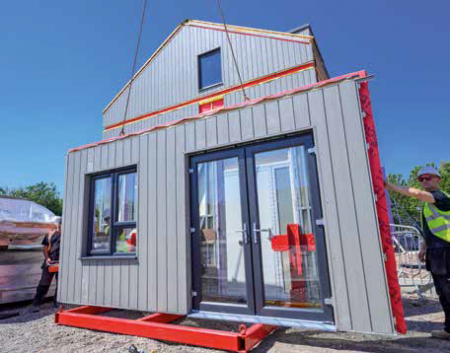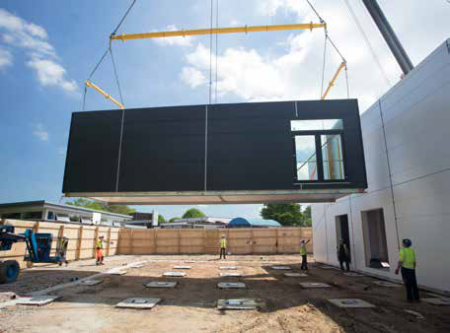Certification and independent validation of performance has never been more important. Andrew Way, associate director at the Steel Construction Institute (SCI), provides an overview about the value of product certification and highlights the importance of understanding the specifics whether you are a manufacturer needing certification or a specifier seeking a suitable product.
The basic premise of certification is that something has been independently checked or verified, thereby giving confidence to users and specifiers that it meets defined requirements. Certification can be applied to a product, a service or performance data. It can also be applied to process, such as a design process whether that be automated carried out by software or a more manual process carried out by a designer.
There are many different certification and assessment schemes available in the construction sector and knowing the details are vital for determining if the scheme is appropriate for a given situation, product, or process. This can be a minefield. Some specific certifications will be a prerequisite by particular parties such as those required by warranty providers, other certifications or independent assessments are optional but they provide added assurance and competitive advantage for the product or service.
Credible Certification Services
It is clear that organisations carrying out certification must have the necessary knowledge and expertise. Some certification schemes will be accredited by UKAS which means that the scheme itself will have been independently assessed to ensure the organisation and those individuals carrying the certification are competent and that the scheme is appropriate. Some certifications or assessment schemes will not be accredited, in which case it is likely to be the company's known expertise, status and reputation within a particular sector which enable it to offer a credible certification service.
Certification bodies which are accredited by UKAS should be accredited to ISO 17065 which specifies the 'requirements for bodies certifying products, processes and services.' However, over recent years UKAS has reviewed their accreditations in the construction sector and many of the organisations which previously held accredited to ISO 17065 have had this withdrawn by UKAS and are now converting their accreditation to ISO 17020. The conformity assessment standard ISO 17020 specifies the 'requirements for the operation of various types of bodies performing inspection' – which is not the same as ISO 17065 for bodies certifying products.

Key Differences Between ISO 17065 and ISO 17020
Manufacturers and product specifiers should be aware of the key differences between ISO 17065 and ISO 17020. Product certification schemes to ISO 17065 must have a standard scope and defined product requirements. This means that similar products certified under the same ISO 17065 accredited scheme will have undergone the same level of assessment covering the same scope and the same product performance requirements. The same cannot be said of products certified through an ISO 17020 inspection scheme. ISO 17020 does not demand a standard scope or defined product performance requirements. Certification via ISO 17020 is based on a judgement of fitness for purpose rather than defined product performance criteria. This is open to an inconsistent approach and potential variations in the basis on which certification may be provided.

SCI Certification
SCI provide certification and assessment through several different schemes, each scheme being designed to satisfy the needs of a particular sector, or product type. We have a combination of prescriptive product certification schemes accredited by UKAS to ISO 17065, non-accredited schemes which provide flexibility to suit the bespoke nature of many innovative construction products, and schemes developed at the request of warranty providers.
Our experience of providing certification and assessment services has demonstrated the importance of independent validation as during the process it is not uncommon to discover errors in the technical information which is submitted. The issues that are identified (and corrected) obviously vary from case to case but most fall into some common categories. These categories include the incorrect or incomplete application of design calculations which may be based on expressions from codes and standards or engineering first principles, the improper derivation of design values from test data, and the inappropriate use of performance data for alternative materials.
Without independent certification and assessment by organisations with the necessary expertise many of these inaccuracies or omissions would not necessarily be identified. This is particularly true because much of the design information or performance data that is accessible to the market is presented as fact in the form of product information sheets or load span tables, or even software output. This 'blackbox' approach to performance data means that individuals do not have the opportunity to investigate the derivation or accuracy of such data.
For more information visit: www.steel-sci.com or contact: certification@steel-sci.com
IMAGES
01. Andrew Way, Associate Director, The Steel Construction Institute (SCI)
02. Installation of completed external wall panel for a residential development. Image courtesy of EOS and Osco Homes.
03. Installation of a module for a two-storey modular hall system. Image courtesy of Portakabin© – Culverstone Green Primary School.









